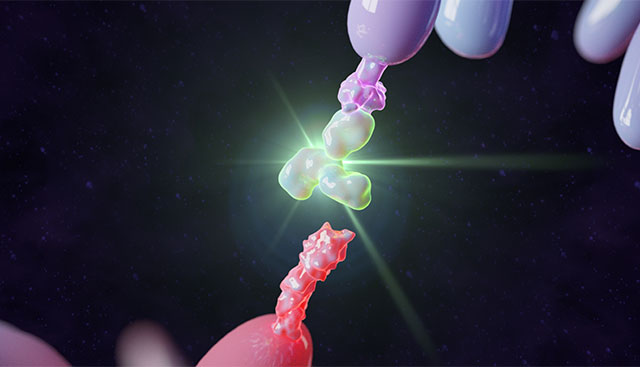
Ethnicity’s Role in Checkpoint Blockade Therapies
Checkpoint blockade immunotherapy is a type of cellular immunotherapy actively studied at Moffitt, and we continue to explore new ways to utilize these advanced treatments and increase effectiveness among patients.
Given the growing presence of tumor types in diverse populations, Moffitt Cancer Centers Jacob Adashek, DO and team set out to study whether ethnicity could be a significant factor in the response rates and effectiveness of checkpoint blockade therapies.
Most studies around immune checkpoint blockade therapy (ICT) to date have largely focused on White patients. One example is the National Cancer Database’s study, which found that 97% of first-line ICT treatments for melanoma patients were administered to White recipients.
In looking at immune checkpoint blockade therapy outcomes in patients with ethnically diverse backgrounds, Dr. Adashek and team specifically studied whole-genome sequencing in over 7,000 patients from The Cancer Genome Atlas Project (TCGA) and RNA sequencing expression profiles of various immune therapy molecules.
The study looked at various immunoregulatory molecules (PD1, PDL1, PDL2, and CTLA4, and others), testing ethnicity for association with RNA expression of these targetable control point genes. They further validated findings by checking associations of ethnicity/checkpoint found in TCGA with a private NANT Health database of over 2,700 patients.
The study found that certain patients, based on their ethnicities, have different expression patterns of cell surface immunoregulatory molecules.
While ethnicity was not a factor in varying expression of checkpoint molecules in lung cancer within the TCGA data, ethnicity was a major factor in blockade therapies at effectiveness checkpoints within melanomas, breast cancers, and colon cancers.
For example, breast cancer patients of Black ethnicities displayed significantly higher expressions of PD1, CTLA4, IDO1, LAG3, GITR, and OX40 relative to White patients. Within melanomas, Asian patients displayed lower expression of PDL1, CTLA4, and IDO1 than in White patients.
The study found that ethnicity can make a major impact on the effectiveness of checkpoint blockade therapies. Respective to the data above, White patients with breast cancer can be predicted to demonstrate reduced sensitivity to PD1/CTLA4 blockade, whereas Black colon cancer patients may demonstrate reduced sensitivity to IDO1 therapies.
The goal of these findings is to inform rational trial design in the future so clinicians can design trials that incorporate more patient characteristics and look into RNA sequencing to see different expression patterns based on patients’ ethnicities.
To optimize and personalize disease management, a biomarker-driven approach to patient selection may ameliorate ethnic disparities in ICT outcomes.
This study’s findings were presented at ASCO by Dr. Adashek.
At Moffitt Cancer Center, patients have access to checkpoint blockade therapies and other advanced treatment options. Through our robust clinical trials program, many patients also have the opportunity to benefit from our breakthrough discoveries. Our multispecialty team is committed to matching patients with clinical trials most appropriate for each patient’s unique needs.
To refer a patient to Moffitt, complete our online form or contact a physician liaison for assistance or support. As part of our efforts to shorten referral times as much as possible, online referrals are typically responded to within 24 - 48 hours.
